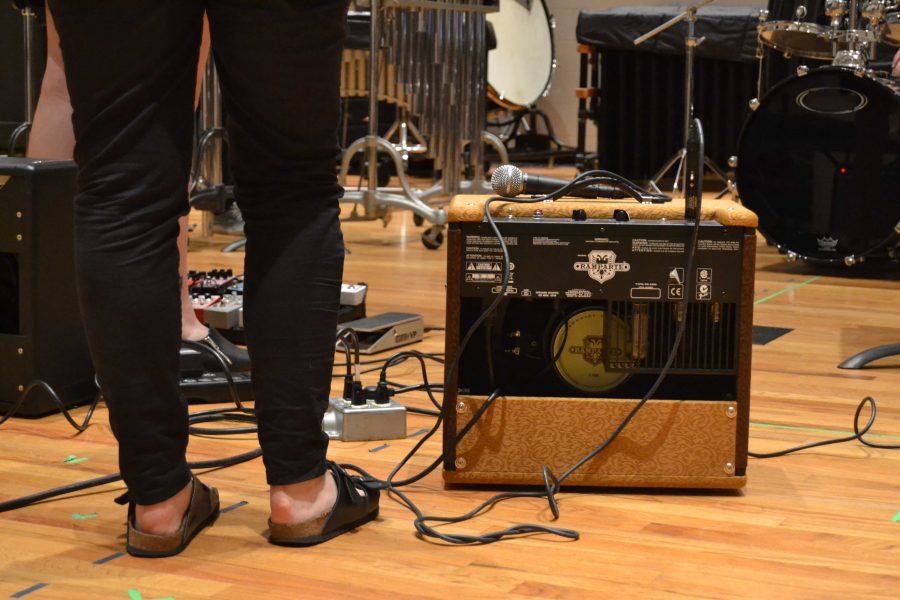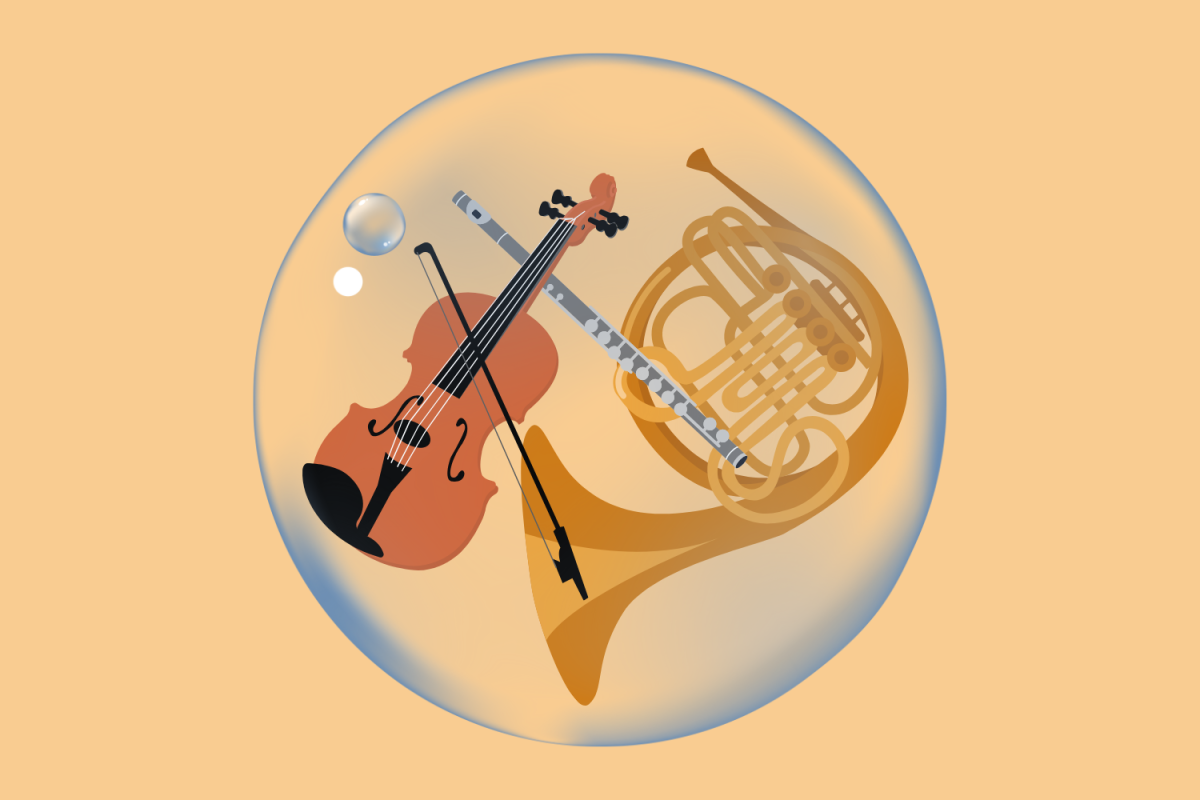Classical music has been an integral part of music curriculum both in the Blair School of Music and in the rest of the music world for hundreds of years.
In previous years, the Blair School of Music has had many ensembles and groups performing classical music, but few featuring modern-day composers. There were plenty of composition majors and other students composing music, but the process of getting groups to play their composed pieces was very difficult and time-consuming.
Students Thomas Faulkner, Tony Kirk, Jeremy Rosenstock, Lukas McIlhaney, and Aislinn Bailie agreed that new music was lacking in presence at Vanderbilt and in the Blair School of Music. They decided to take on the task of creating an ensemble committed to integrating new music and music by modern-day composers into the student body.

“The Eschaton New Music Ensemble is an ensemble of all student musicians, most of them within the Blair School of Music but a few of them from all over Vanderbilt, that are dedicated to performing works by exclusively living composers,” said Faulkner, the ensemble’s president.
They worked for months on creating this ensemble with a mission of not only having musicians play this new music, but having those who weren’t in the ensemble learn more.
“So many students in Blair either didn’t know a lot about new music or contemporary music or were interested in performing it but didn’t have the outlet to do so. We wanted to bring that to Blair and have the opportunities for people who really wanted to play but also people who wanted to learn more about it,” said Bailie, the Public Relations Chair.
Students join the ensemble out of their own pursuit. The rehearsals, practice and performances are entirely extracurricular. The ensemble requires an immense amount of dedication to the art by all of the Eschaton participants.
“Basically, the ensemble itself, Eschaton, is a collection of people. It’s a giant roster of people that may or may not be involved with every concert. So if you were to join Eschaton, that means your name would be on a list, and then when we are planning a concert we would be going through our repertoire. If we need a string quartet and you happen to play the viola, we look through our list of violas. We choose one. We put it in that piece,” explained vice president Tony Kirk.

Composers come to the executive board with their pieces. The executive board then finds musicians to fill the roles, and the smaller groups then have at least four practices before each piece is performed. One of the featured pieces in Eschaton’s upcoming performances, Living Sounds, is a piece composed by Lila Meretzky, featuring Keeheon Nam (clarinet) and Sam Long (voice).
“A thing with new music that I really like, especially here when we’re playing composed music by the composition majors, is that they’re here to answer our questions and help interpret the piece,” said Nam.
This process is not only beneficial for the musicians, but it is a great learning experience for the composers as well.
“You learn so much from the performers about what’s possible to do with their voice or with their instrument or what a young performer feels comfortable with. You know all the things that they’re willing to do, and so as a composer you’re kind of throwing things out and then they’re workshopping it,” said Meretzky.
The piece that they will be performing is not the typical classical piece. It features unique sounds and techniques that are rarely seen in classical performances.
“There’s this technique you can do on clarinet where you sing and play at the same time. That’s actually quite difficult but I get to do that, and not a lot of music has that. So even the clarinet kind of gets to voice their part,” said Nam.
This isn’t the only unique composition that will be featured in the performance. Other students’ works highlight equally unconventional music techniques, making the performance very eclectic and unpredictable.
“This is the new generation of composers. This is where the art is going and if you come to see this you get to be a part of being right on the cutting edge of a huge art form,” said Long.
“It’s exciting to feel like you’re part of a living art. If you come and experience our group, you will be witnessing people in active creation. What we are doing isn’t a glorified monument building like a lot of the rest of classical music. You might be hearing any work we play for the first time ever that anyone has ever heard that piece in that setting or at all, and it’s all by students,” said Faulkner.
See The Eschaton Ensemble perform their concert Living Sounds on Oct. 10 in The Blair School of Music’s Turner Hall at 8 p.m. Also, see their next performance A Humming Under My Feet on Oct. 29 in The Blair School of Music’s Ingram Lobby; 8:30 pre-concert talk and 9:00 p.m. concert.




